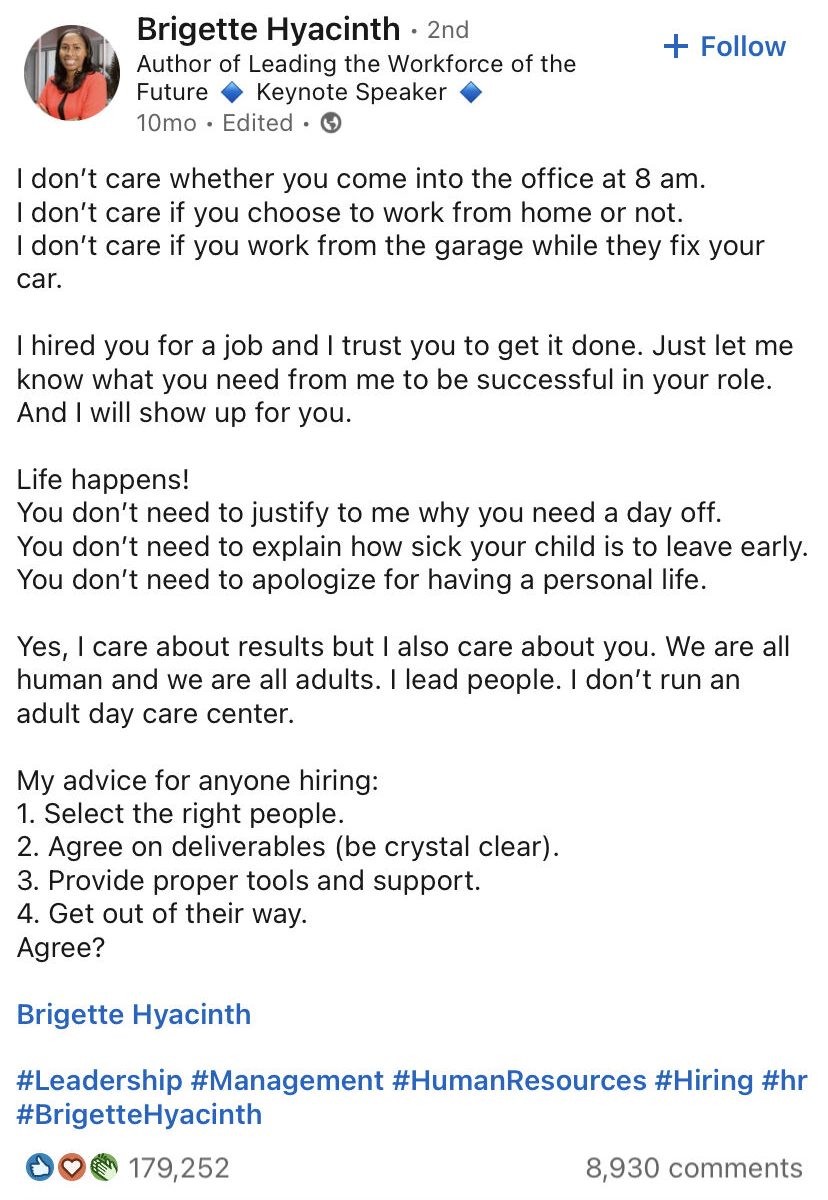Yesterday, I was speaking to Jill (not her real name) who had been on extended sick leave. She was diagnosed with cancer in 2016. She returned to work but was hurt that not one of the Managers called to see how she was doing. Her immediate supervisor would call but quickly cut to the chase, asking her when she was coming back out to work. The cancer is in remission now but Jill said, “I am not going the extra mile like before; they don’t care about me and I don’t care about them!”
True Leadership starts with Empathy:
1.Show that you Care – If we treat people only as the means to an end, we will never have their loyalty. Don’t just consider them as a robot on your cog-like production line.Treat your people right. It doesn’t mean being overly attentive or soft but demonstrate that you value people. It doesn’t take much to show people that you care. If you have an employee on extended sick leave or who loses a family member. Pick up the phone and call them. Be genuinely sympathetic. It will mean the world to them. Sending a card or flowers is good, but take the time to call them. This is something they will never forget. You don’t have to pry. Just a simple question as, “How are you doing today?” will let them know that you care.
“ Leadership is not about being in charge. Leadership is about taking care of those in your charge.” ~ Simon Sinek
2. Show Respect – Wanting employees to come in early and leave late on a daily basis shows a lack of respect for their personal lives. Additionally, contacting them after work hours or while they are on vacation should be avoided. Yes there are situations where you will need to, but this should not be the norm. When employees realize that you don’t care about them by infringing on their personal time, everything you do regarding relationship building activities will seem superficial.
3. Connect with your Team – Be visible. Make your presence felt. Don’t just lock yourself in your office for the whole day and only communicate with staff when you want something done. How can you motivate the troops when you are out of sight? Come down from the mountaintop and mix and mingle with your subordinates. Sit at lunch with them. Get to know your team. Empathy and listening go hand in hand. Listening forms the foundation of good relationships. Why? Because it shows you care.
4. Advocate for Staff – Exhibit loyalty to your employees. In some cases if a complaint is made against an employee, the manager is quick to jump in, and suddenly all the good the employee has done is cast into the sea of forgetfulness. Don’t be the judge, jury, and executioner. Don’t throw your people under the bus, let them know you have their back. Managers also lose credibility when they refuse to hold themselves accountable, point fingers and palm of the blame on others.
“ Empathy makes me a stronger leader.” – New Zealand PM Jacinda Ardern
5. Grant Autonomy – Micromanaging and breathing down someone’s neck all the time can be very disheartening. Sometimes knowing when to step back and let your employees do their work is what they need. Give people responsibility and challenges that will help them to grow. Let them come up with ideas. When you empower your employees it shows that you trust them and they will not want to let you down.
6. Be Fair and Neutral – We know too well about office politics and favoritism. It’s really sad when employees can tell who will be getting the next promotion based on a manager’s relationship with some employees. Unfair practices relate to how vacancies are filled, disciplining inconsistently and even in how a leader allows leeway in work schedules. This fosters low engagement. Give constructive feedback rather than criticism. Don’t give preferential treatment to some employees and ignore others.
7. Share and Give Credit. – Don’t brush over your team’s successes with a bland acknowledgement while automatically working towards the next goal? Be generous with Reward and Recognition and “Thank Yous.” Recognize publicly. Rather than just recognizing top performers include those who are improving or doing their best. Furthermore, Celebrate victories. Don’t be a taskmaster! Yes, employees already know that they come to the office to do a job, but you should not stop them from having fun as well.
” Everyone you meet is fighting a battle you know nothing about. Be kind. Always. “
Leadership is about people -full stop! If you don’t have a passion for people, you have no business leading them. In a perfect world, employees leave their problems at the door. In this not-so-perfect world, they bring them to work. We need leaders who will practice empathy. According to studies, empathy is the single biggest leadership skill needed today.
Sometimes it’s the little things we do that counts the most. It’s the simple things people remember. The thoughtful gesture, the kind word, the much needed support. It’s doesn’t cost much to show employees you genuinely care, but it can make the biggest difference in keeping them loyal, happy and engaged.
Check out my latest Bestselling Book











